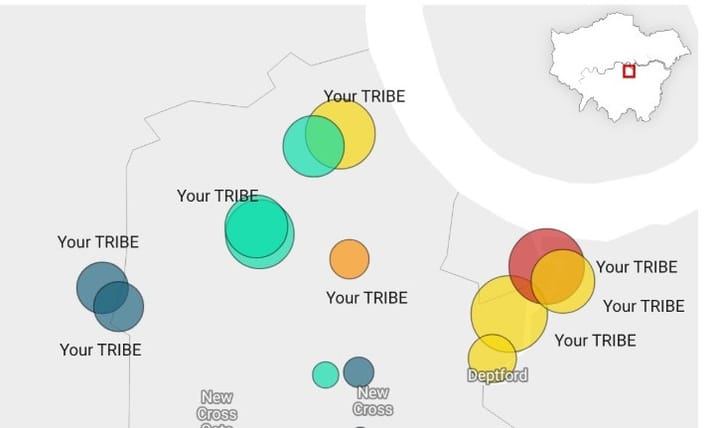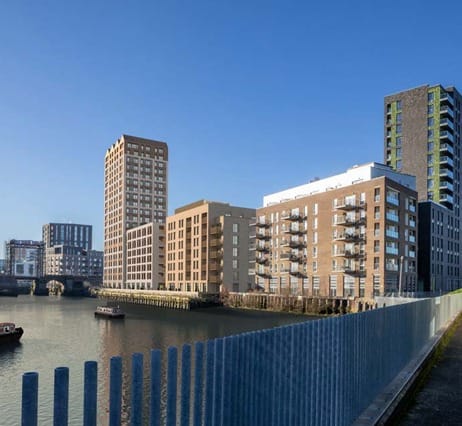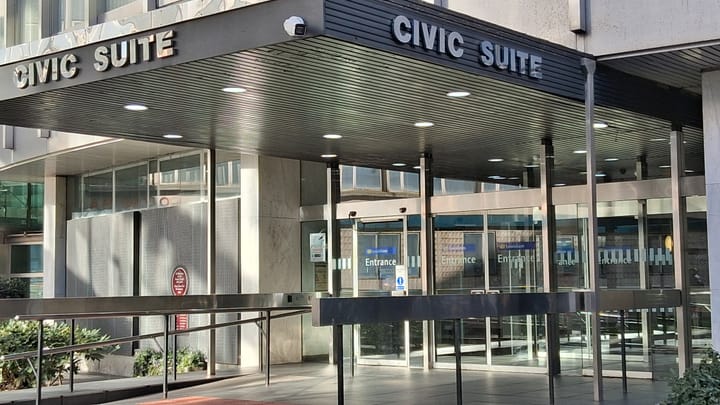Disabled people, peace campaigners and councillors join protest at Lewisham AGM
Disabled People against the Cuts were joined by councillors opposing the government's plans to slash disability benefits. Peace groups rallied in support of Cllr Shrivastava, who lost his role on the Pension Investment Committee after calling for divestment for Palestine.
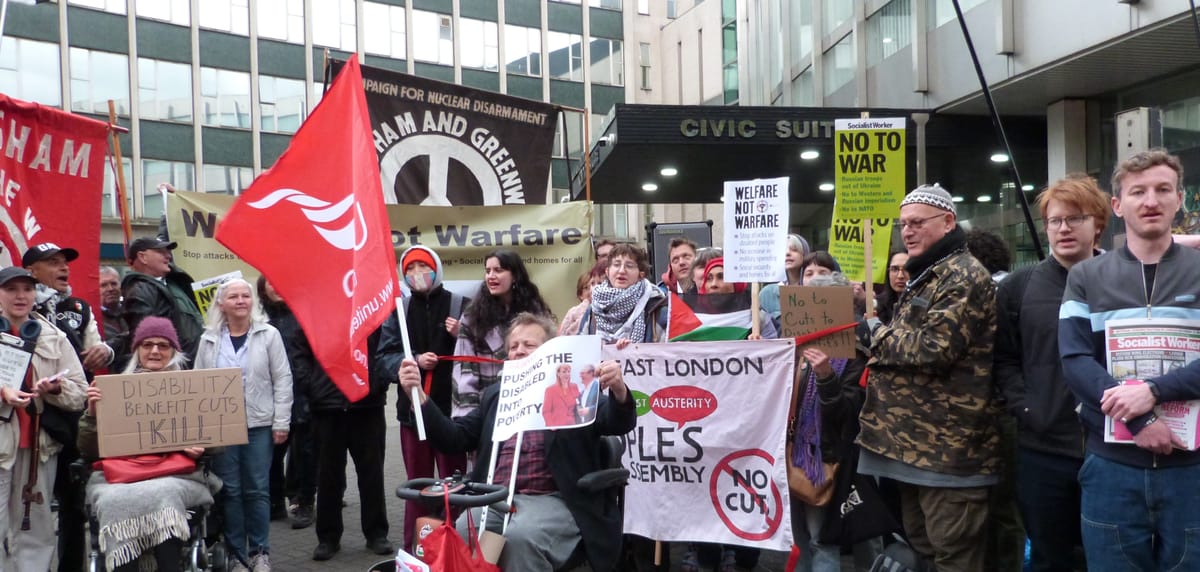
Under the banner "Welfare not Warfare", a coalition of local organisations joined the protest against the government's disability benefit cuts at Lewisham Town Hall, Catford.
Campaigners also spoke in support of Councillor Liam Shrivastava, who proposed the motion for divestment to the council's Pension Investment Committee in September 2024.
The AGM confirmed that Shrivastava had lost his role on the committee. Councillors also approved changes to the council's constitution, making amendments which appear to limit the public's right to ask questions and formalising the council's earlier decision to end local assemblies.
53 out of 54 councillors on Lewisham council are members of the Labour Party. However, several councillors spoke against the Labour government's planned cuts to disability benefits, insisting that many of their colleagues agreed with them.
"There's great disquiet within the Labour Party," said Councillor Stephen Penfold. Even by the most conservative estimates, an additional 50,000 children would be driven into poverty, he said. "It's not something that I can support as a Labour Party member."
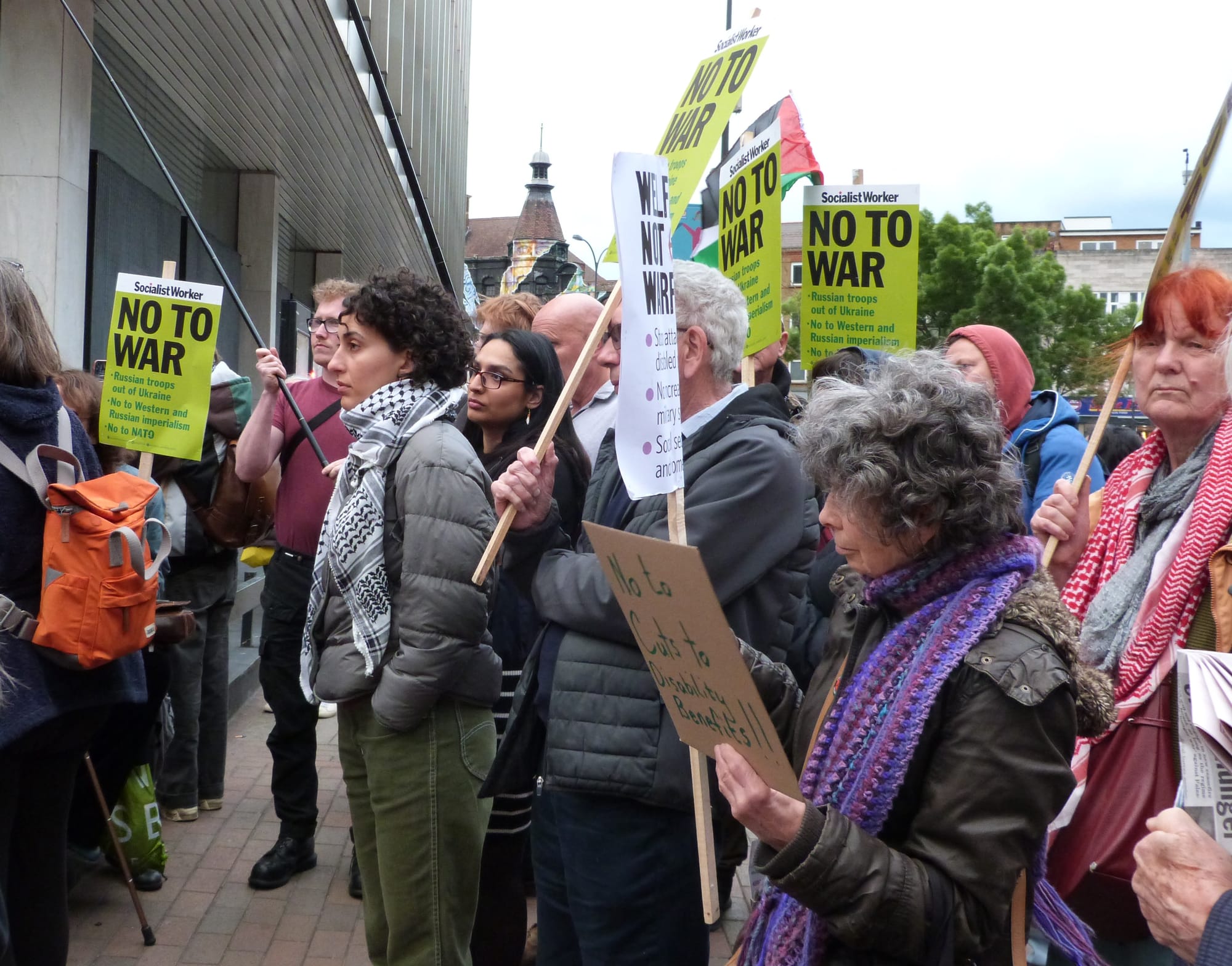
Councillor Aisha Malik-Smith recounted her experience of the "faulty and punitive" approach of the Department of Work and Pensions, which left a disabled family member without any source of income. She described a system that "humiliates the most vulnerable" instead of protecting them.
Addressing the crowd, she said: "I know that many of my Labour colleagues and fellow councillors agree with you." She added that she would be organising a joint letter from Lewisham councillors to the government, asking them to backtrack on the plan.
Lewisham Disabled People Against the Cuts (DPAC) led the rally, with many local organisations, including Homes for all UK, South East London People’s Assembly, Stop the War Coalition and Lewisham and Greenwich CND, in support.
Paula Peters from Bromley DPAC had travelled to Lewisham in solidarity with the local branch. "Over 800,000 disabled people will be plunged into poverty as a result of cuts to PIP," she said.
Peters added that not only will disabled people lose their independence, but many would lose their lives as a result of the cuts. "The government doesn't have to do this, they need to bring in a wealth tax and tax the rich."
Speakers maintained that cutting benefits was a choice and the government has other ways to raise money.
John McGrath of Lewisham and Greenwich CND pointed to the UK government's increase in military spending. "They call it defence spending, but it's not in defence of anyone's life," he said. "The NHS is what support us, education is what supports us."
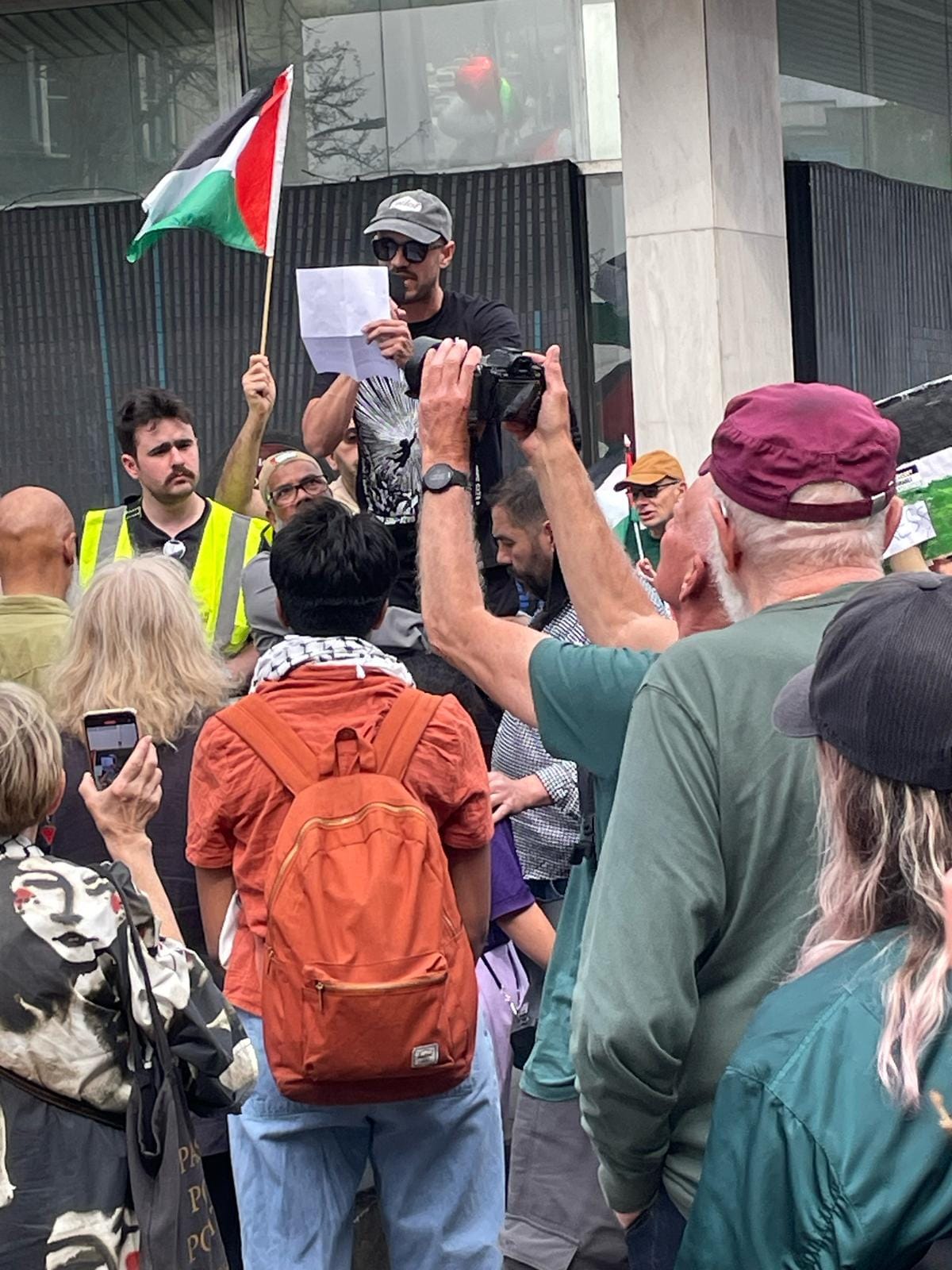
Cllr Shrivastava removed from role after divestment motion
Campaigners also called out the decision to remove Councillor Liam Shrivastava from the Lewisham council's Pension Investment Committee.
In September 2024, Councillor Shrivastava proposed a motion to explore moving the council's investments away from "the arms trade and any companies implicated in human rights abuses or which operate in the Occupied Palestinian Territories".
The motion was passed unanimously. However, Shrivastava reported that following the meeting, he received a formal warning from Lewisham Labour Group, which censured him for bringing the divestment motion to the committee.
He says that the letter accused him of "bringing the Party into disrepute".
Campaigners believe that Shrivastava was targeted due to his support for divestment, which breaks with the national Labour party position.
A spokesperson for Lewisham Labour Group responded:
"Each committee sees several changes in its membership every year at the AGM. These allocations are decided based on the indicated preferences of members, number of spaces and ensuring equity of opportunity when competing preferences arise between councillors."
Lewisham peace organisations have campaigned for over eight months, calling on the council to divest and pointing out its obligations under international law. On 12th April, they delivered a petition signed by over 3,000 residents in support of divestment.
The AGM confirmed the decision to remove Shrivastava from the Pension Investment Committee.
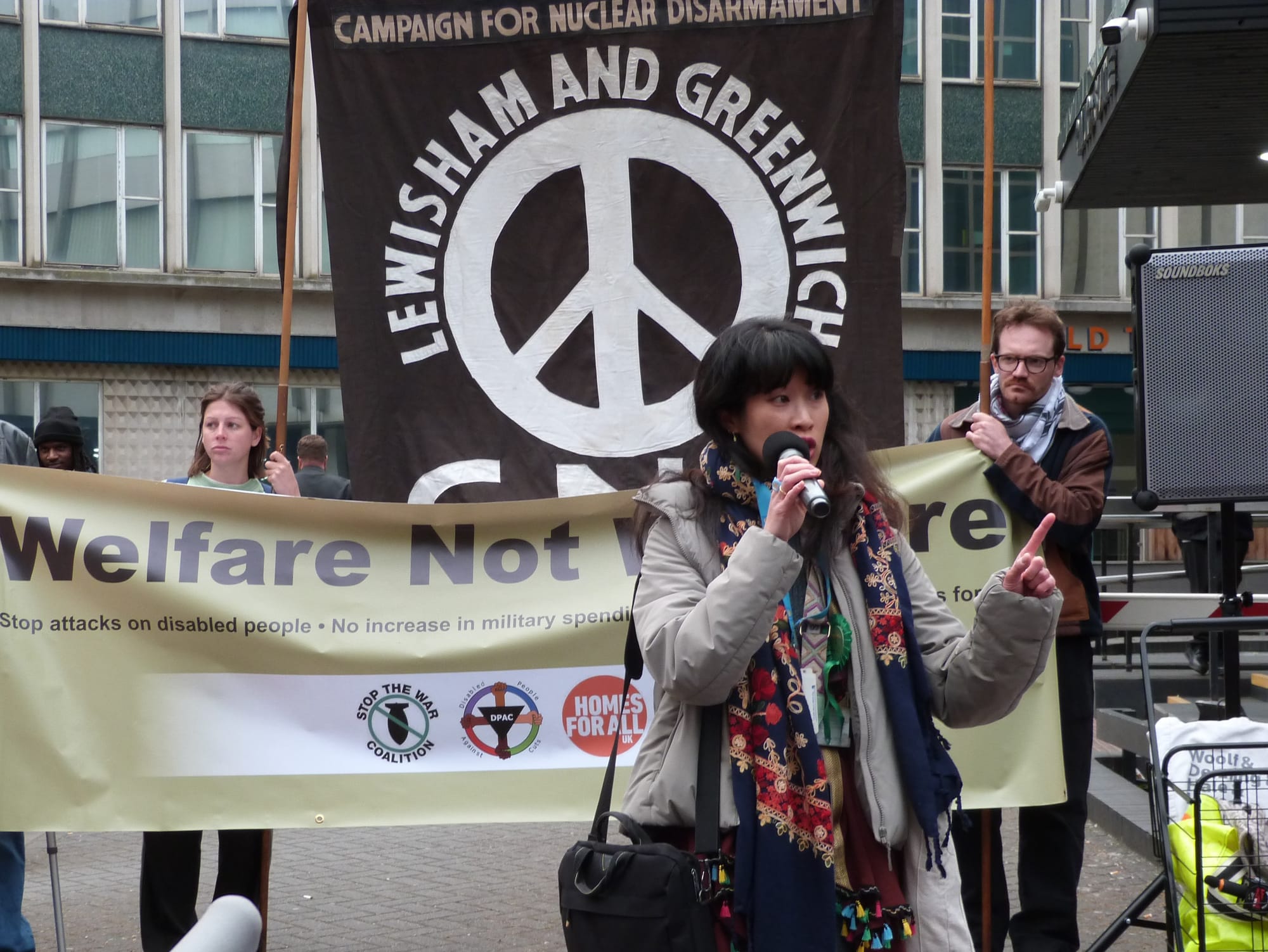
Changes to Constitution may affection motions on human rights
The AGM confirmed multiple changes to the council Constitution, which councillors had reviewed through a series of internal workshops.
The review reports that they compared elements and used examples from Tower Hamlets, Newham and Hackney's constitutions.
Green Party councillor Hau-Yu Tam, the sole opposition councillor, was the only councillor to oppose the changes. She raised concerns about amendments to how the public and how members can ask questions.
She noted a further change that motions that are put forward from members of the public have to be "something that significantly affects the interests of local people."
Tam said: "I oppose this, because I think that motions regarding human rights and motions regarding international law are a matter of local place and the local community in Lewisham as well."
End to local assemblies leaves a gap in Constitution
A further change removes references to local assemblies from the Constitution.
Lewisham council previously ran local assemblies across its 18 wards, describing them as "community-based open forums aiming to actively involve, consult, empower and learn from residents".
However, councillors decided to end local assemblies in January, and confirmed this at the Council Budget meeting on 5th March 2025. This is expected to save around £203,000 per annum, once the cost of redundancies has been accounted for.
The council had concerns that local assemblies, "generally engage residents who are already democratically engaged and not those more representative of our diverse communities."
It has started a review of how it engages with the community, but has not yet announced any alternatives.
The current situation - where there is no replacement engagement strategy - has now been formalised in the new constitution. References to local ward assemblies have (mainly) been deleted, leaving a gap in sections describing how community representation will work.

